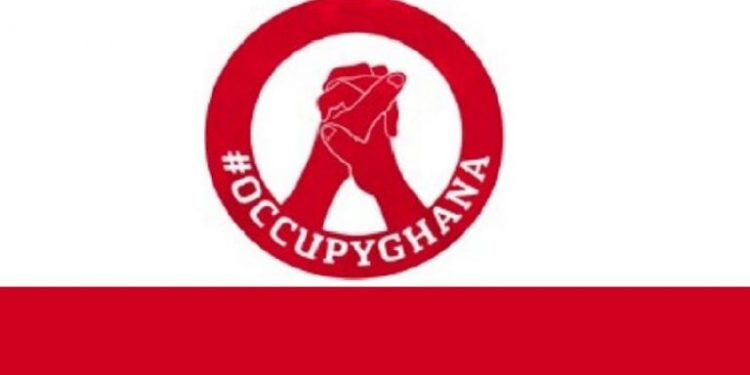Pressure group, OccupyGhana, has added its voice to the growing calls for the resignation or removal of the Health Minister, Kwaku Agyemang Manu following the botched Sputnik V vaccine procurement contract.
The group says, as a remedy to avert procurement breaches in the future, Parliament must as a matter of urgency :pass a law required under Article 181 (5) so that international business transactions are not carried out without parliamentary and cabinet approvals or Public Procurement Authority ratification and the Attorney General’s endorsement.”
In a statement, Occupy Ghana insisted that the failed agreement would have been prevented if the procurement agreement was entered into with parliamentary approval, and that the Health Minister must step down from office with explanations on timelines for a full refund of money already expended on the deal.
“While calling for this resignation, we also believe that Ghanaians ought to be told which other officials were involved in the processing and paying the monies, without demanding and seeing the requisite approvals; those officials ought to be similarly sanctioned. Also, Ghanaians should be told when we expect to receive a full refund of the outstanding amount from the recipient.”
OccupyGhana also wondered why the Ministry of Health, Ministry of Finance, Controller and Accountant-General, and the Bank of Ghana would payout government monies without seeing or demanding to see any of the stated approvals.
“It is on the basis of the foregoing that we demand that the Health Minister resigns from office. Even if he meant well under emergency circumstances, those did not justify bypassing our constitutional and statutory processes. If the Health Minister does not resign of his own accord, then we call on the President to relieve him of his post”, the statement further added.
Find below the full statement from OccupyGhana
OccupyGhana has seen a copy of the ‘REPORT OF THE AD HOC COMMITTEE TO INVESTIGATE THE PROCUREMENT CONTRACT BETWEEN THE GOVERNMENT OF THE REPUBLIC OF GHANA AND HIS HIGHNESS SHEIKH AHMED DALMOOK AL Maktoum AND S L GLOBAL FOR THE SUPPLY OF SPUTNIK-V COVID-19 VACCINES,’ dated August 2021.
We have also seen the 3 August 2021 letter from the Ministry of Health, addressed to the Chairperson of the Ad Hoc Committee, titled ‘SUBMISSION OF FURTHER INFORMATION TO THE AD HOC COMMITTEE ON THE PROCUREMENT OF SPUTNIK-V COVID-19 VACCINES.’
It is clear to us from the above that the Health Minister entered into an international business transaction and paid or supervised the payment of monies under the transaction without parliamentary approval, without cabinet approval, without Public Procurement Authority approval or ratification, and without the endorsing advice of the Attorney-General.
We do not think that the emergency situation created by the pandemic and the urgency required, constituted sufficient reasons to bypass all of these steps that are required by law. As Parliament has indicated, it would have acted with the speed and urgency that the emergency required, had the request for approval been made to it.
We are further struck that although payment was made under the transaction; the Minister said he did not know about it, as at when he testified before Parliament. Contrary to this claim, the Health Minister was copied in the letter from the 31 March 2021 letter from the Acting Controller and Accountant-General to the Bank of Ghana requesting BOG to make the advance payment to Al Maktoum from the Health Ministry’s accounts. That letter also referred to a 25 March 2021 letter from the Ministry of Finance, obviously authorizing the payment, and which must have been copied to the Health Minister.
It is unbelievable that at each of these stages of payment requests, the accompanying, supporting documents did not include the approvals mentioned above. It beggars belief that the Ministry of Health, Ministry of Finance,
Controller and Accountant-General and Bank of Ghana would payout government monies without seeing or demanding to see any of the stated approvals.
It is on the basis of the foregoing that we demand that the Health Minister resigns from office. Even if he meant well under emergency circumstances, those did not justify bypassing our constitutional and statutory processes.
If the Health Minister does not resign of his own accord, then we call on the President to relieve him of his post.
While calling for this resignation, we also believe that Ghanaians ought to be told which other officials were involved in the processing and paying the monies, without demanding and seeing the requisite approvals; those officials ought to be similarly sanctioned. Also, Ghanaians should be told when we expect to receive a full refund of the outstanding amount from the recipient.
Further, this incident and several others before it, bring again into sharp focus the refusal, neglect, or failure of Parliament to enact the law that would clarify article 181(5), as demanded by the Constitution itself. Article 181(5) of the Constitution applies its loan approval procedures involving parliamentary approval, to international business and economic transactions, in the following terms: ‘This article shall, WITH THE NECESSARY MODIFICATIONS BY PARLIAMENT, apply to an international business or economic transaction to which the Government is a party as it applies to a loan’ [emphasis ours.]
Clearly, although the framers of the Constitution wanted such transactions to have parliamentary oversight (just as loans), they anticipated that some modifications would be necessarily required to make them apposite, and therefore empowered Parliament to take legislative action in that regard.
It cannot be seriously contended that Parliament has not found that there are any modifications are required. The facts show that Parliament’s inaction has left a huge gap in our governance structure, allowing ministers to do as they please and sadly ceded this important law-making function to the Supreme Court.
Thus, based on the ‘accident’ of litigation, the Supreme Court has been compelled, not only to interpret article 181(5), but to make rules governing its application; something Parliament should have done. Thus, in cases such as ATTORNEY-GENERAL v FAROE ATLANTIC, KLOMEGA v ATTORNEY-GENERAL, ATTORNEY-GENERAL v BALKAN ENERGY, and AMIDU v ATTORNEY-GENERAL, the Supreme Court has been practically compelled to ‘legislate’ on this matter, and lay down the conditions for it, a constitutional function that Parliament has clearly abdicated.
Particularly in ATTORNEY-GENERAL v BALKAN ENERGY, one can literally feel the desperation of the Supreme Court as it was compelled to ‘imply’ the word ‘major’ into article 181(5), and define that term as it felt appropriate. The Court added:
‘We do… agree with the defendants that Parliament needs to exercise its legislative power in relation to article 181(5) in order to clarify which transactions are to be viewed as major…
It is… imperative that Parliament takes up early the challenge of framing the modifications to article 181 needed to give greater certainty and clarity as to what categories of international business or economic transactions to which the Government is a party come within the ambit of Article 181(5). In the interim, a certification by the Attorney-General that an international business transaction to which the Government is a party is “major” or not should be accorded great weight by the courts, although it cannot be conclusive. We are here, of course, referring to the Attorney-General’s certification before a dispute has arisen between the Government and any party.’
We are also aware that over a decade ago, the then Attorney-General wrote to Parliament with an urgent plea to pass the law required under article 181(5), because the lack of clarity was affecting government business.
These pleas by the Judiciary and the Executive to Parliament have obviously fallen on deaf ears. Instead of making the rules, Parliament is often found citing these cases, as it did in its Report, oblivious to the blindingly obvious irony.
Instead of taking the lead and making the law, Parliament appears content with following the Supreme Court’s lead. The effect of this abdication is that there is no single source of the law on the matter, leaving ministers and actors to do as they please, and the article is only applied to those who get ‘caught’ when they flout it.
We, therefore, call upon Parliament to, as a matter of urgency, draft, consider and pass the required legislation that will give to article 181(5) the clarity anticipated by the framers of the Constitution, demanded by the Supreme Court and prayed for by the Executive through the Attorney-General.
Yours, for God and Country
OccupyGhana










Discussion about this post